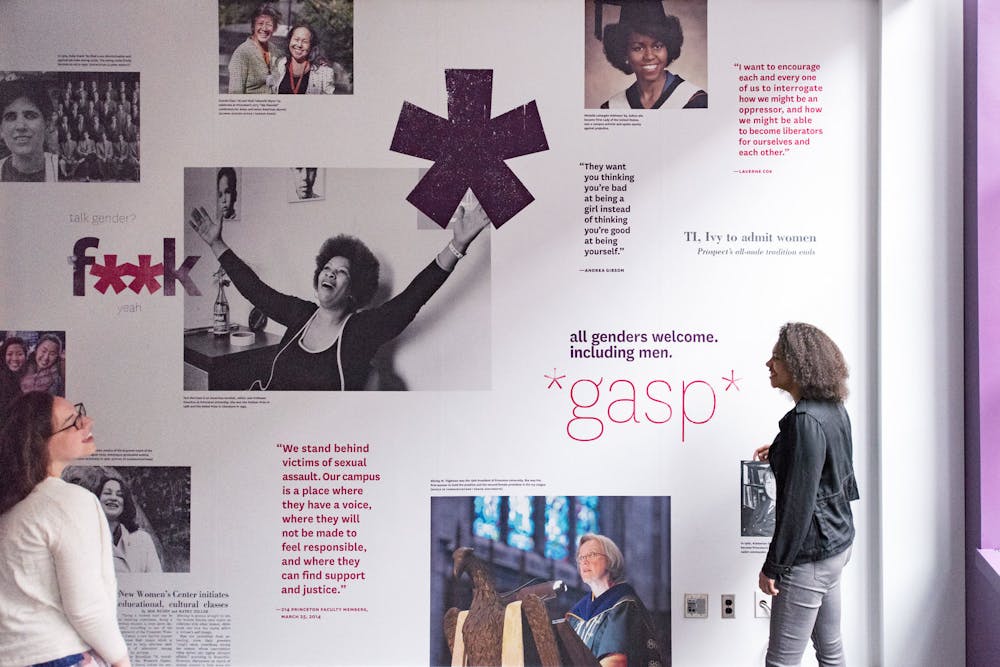Inspired by a desire to better address the needs of current students, the University will launch a new center for gender and sexuality this fall.
Dean for Diversity and Inclusion in the Office of the Vice President for Campus Life LaTanya Buck said that the new center will help “carry out our mission to eliminate discrimination and injustice at Princeton based on sex, gender and sexual identity,” according to the University’s press release.
The new center for gender and sexuality will consolidate the staff and services of the Women*s Center and LGBT Center into one operation that works to acknowledge the intersections of gender and sexuality.
The Women*s Center first opened in 1971 and the first official LGBT Center opened in 2005. Some of their features will remain in place under the new center, such as affinity graduation ceremonies, individual and group-based support for students, and peer education, but some programming might look different.
“This new model will allow us to be more inclusive and expansive in our programs, practices, and services to students from all identities along the spectrums of gender and sexuality,” wrote Buck in a statement to The Daily Princetonian.
Buck expressed hope that the center’s programming will be more intersectional than current programming and that the curricula will be more targeted to student feedback.
Ideas for the center came from a yearlong review process that engaged several members of the University community. In order to gather more ideas for the new center — including its name — faculty and staff are holding small group listening sessions with current students.
Mollika Singh ’24, an LGBTQIA Peer Educator with the LGBT Center, attended one such session on Wednesday, April 21, with one other first-year student. During the meeting, a consultant for the University and professor at Merrimack College, Dr. Susan Marine, asked what the two students wanted to see from the new center to make it more inclusive and what their thoughts were on expanding its reach to graduate students, faculty, and staff.

Singh is the ‘Prince’ Editorial Board Chairperson and an opinion editor.
Singh agreed that more inclusive programming from the new center might be beneficial in welcoming more people who are not secure in their identity.
“I feel like it might help to acknowledge that a lot of our conversations overlap and that gender and sexuality are really unable to be anything but intertwined,” she said.
The Women*s Space and Rainbow Lounge — the affinity space for the LGBT Center — will both continue to operate as distinct spaces in Frist Campus Center in order to maintain affinity spaces but there will be a rebranding of the spaces, according to Buck.

“I hope merging the spaces makes it easier for people who are unsure if they belong in those spaces to test them out,” Singh said.
Singh also expressed hope that with the new center, more students will have access to the community she has found with other peer educators.
“I would like for [student leaders] affiliated with the new center to be explicitly resources for other students,” she said.
Another stated goal of the new center is to interact more with the Program in Gender and Sexuality Studies.
“There is an opportunity for us to continue to explore gender and sexuality through a critical and intersectional lens, engage GSS students’ and scholars’ research, and partner on co-curricular experiences like programming and mentorship,” Buck said in the University’s statement.
Singh is not sure, though, that the rebranding through the new center is entirely necessary.
“I think the main benefit and thing now is that at least they're considering changes in programming to what is currently offered,” Singh said. “I'm not sure that the actual name change or nominal merging matters as much.”
In Singh’s view, one benefit of the new center will be the addition of staff members. The new center will be funded by the Office of Campus Life and will be run by an assistant director and two program coordinators. The Women*s and LGBT Center each currently have one program coordinator.
The University also recently created a position for an assistant dean for diversity and inclusion/director who will oversee the new center by monitoring operations, leading the center’s strategic initiatives, and creating a positive environment for women and LGBTQIA+ communities on campus.
“[The assistant dean] will serve as an institutional resource about women/femme issues, issues of gender and gender equality, gender identities, LGBTQIA+ issues, and diverse sexual orientations,” Buck wrote in her email to the ‘Prince.’
More information on the new center will be coming in the next few months after staff have conducted listening sessions to hear what current students want from the program.
Editor’s Note: A previous version of this article incorrectly stated that the Women*s Center and LGBT Center would continue to operate separately. Though the spaces of the Women*s Center and Rainbow Lounge will continue to be distinct, their operations will all fall under the new center. The previous version identified Singh as an LGBTQIA+ Peer Educator rather than an LGBTQIA Peer Educator. The article also referred to the person conducting the listening session as a Princeton staff member. They were actually a consultant for Princeton. This article was also updated to reflect Singh’s role as an opinion editor at the ‘Prince.’








